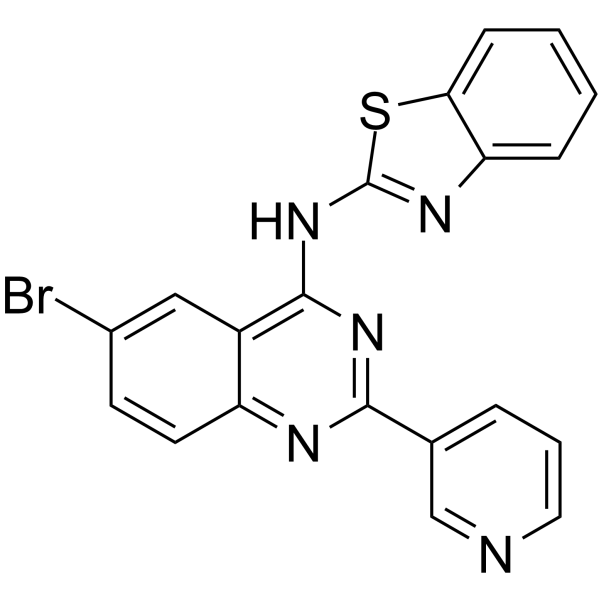| Description |
EGFR-IN-63 is an EGFR inhibition (IC50: 0.096 μM) and it has anticancer activity in MCF-7 cells (IC50: 2.49 μM).
|
| Related Catalog |
|
| In Vitro |
EGFR- IN-63 (2-4 hours) has superior EGFR inhibition (IC50 = 0.096 μM) compared to Gefitinib (IC50 = 0.166 μM)and anticancer activity against MCF-7 cell line (IC50 = 2.49 μM) compared to Gefitinib (IC50 = 4.972 μM). EGFR- IN-63 leads to pre G1 apoptosis with cell growth arrest at G2/M phase in MCF-7 cells after 24 h, the percentage of DNA content (41.45 %) shows increase compared to the control cells (7.1 %). EGFR- IN-63 arrest cell growth at G2/M phase and induces its apoptotic effect. The percentage of the total apoptotic cells in MCF-7 cell line increases after treatment with EGFR- IN-63(24.19 %) relative to control cells (1.47 %)[1]. Cell Cytotoxicity Assay Cell Line: A549, MCF-7,WI38, PC9 and HCC827 cell lines Concentration: 10% of the culture medium volume Incubation Time: 2 - 4 hours Result: Displayed superior EGFR inhibitory、anticancer activity and low cytotoxicity. Cell Cycle Analysis Cell Line: MCF-7 Concentration: 0.01 μM Incubation Time: 24 hour Result: Led to pre G1 apoptosis with cell growth arrest at G2/M phase in MCF-7 cells. Apoptosis Analysis Cell Line: MCF-7 Concentration: 0.01 μM Incubation Time: 24 hour Result: Revealed cell growth arrest at G2/M phase and inducted apoptotic effect.
|
| References |
[1]. Heba Abdelrasheed Allam, et al, Design and Synthesis of some new 2,4,6-trisubstituted quinazoline EGFR inhibitors as targeted anticancer agents, Bioorg Chem. 2020 May;98:103726
|
